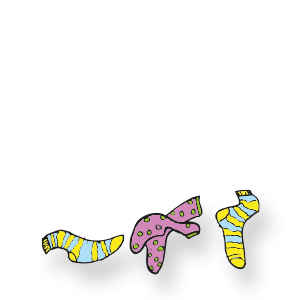

Banish the Imposter Syndrome

Stephanie Hall, Ollie Coach, takes you through 3 simple tips to help you banish the Imposter Syndrome so that you can always believe 'you are good enough!'
I am good enough!
I can remember very clearly some key moments in my life when I felt like an imposter. One of those was my first day at university when I opened my mouth and my South East London accent came out. Immediately after I spoke I felt stupid, like my accent would make people think I wasn’t good enough to be there. I compared myself to others in the room and imagined them to be more intelligent, cultured and well-read than I was. It didn’t help that I was in Cambridge studying, somewhere revered for culture and learning.
This has happened repeatedly at different times in my life whether it was introducing myself as the MD of the software company I co-founded, speaking in public or, more recently, when I became a mother. The feeling crept up, the fear that someone would find out that I didn’t know anything and shouldn’t be there. Of course, none of this was true but the niggling feeling didn’t go away.
If you’ve ever worried that at any minute you’ll be discovered as a fraud or your boss will realise they made a mistake you’re not alone. Anyone can experience these feelings including celebrities, entrepreneurs and world leaders from Sheryl Sandberg (COO of Facebook) to Howard Schultz (CEO of Starbucks), from Serena Williams (Professional tennis player and former world number 1 in women’s singles) to Dame Helen Mirren (Actress) and from Jocelyn Bell Burnell (Astrophysicist) to Lady Gaga (Singer-Songwriter). An estimated 70% of people will experience Imposter Syndrome at least once in their life and it’s not a new thing. The term was first coined in 1978 by clinical psychologists Pauline Clance and Suzanne Imes. It seems no one is exempt from feelings of inadequacy no matter how much success, wealth or acclaim they achieve. What most people don’t realise is that it is just a story we’re telling ourselves and that we have the power to change our story.
For me juggling so many balls and trying to maintain impossibly high standards in every area of my life became an impossible task. The harder I tried, the more success I achieved and the higher the praise from others the greater the feeling of failure and of not being enough was.
So what can we do to banish Imposter Syndrome?
- Work on your inner critic. We can’t change events but we can change how we feel about them. By working on building your confidence and telling yourself a different story you can feel better about yourself, situations and events.
- Recognise when your critical voice rears its head and use this as a reminder to ground yourself in the present. Usually, the story you tell yourself is rooted in the past or focuses on the future.
- Prevent yourself from getting lost in the story you’re telling yourself which is a version of the truth but is rarely based on fact or evidence. Acknowledge where you are right now in this moment.
Now when I start to feel Imposter Syndrome rearing its head I focus on my breath for a few moments, visualise myself as I want to be and I take comfort that even Michelle Obama asks herself “am I good enough?”
Stephanie Hall, Ollie Coach trainee
Stephanie is a trainee Ollie Coach, SEND parent, wife and connector. She is passionate about human connections and supporting people to feel fulfilled, seen and heard. Her insatiable appetite for learning and capacity for empathy has led her to become a coach after a successful and varied career path including working with children, families and adults and running her own companies. Having overcome her own challenges, including a rare chronic illness which left her bedridden for 6 months, she is compelled to help others to take control of their own lives by empowering them to access their inner resources and live the life they deserve.
To get in contact with Stephanie, email info@ollieandhissuperpowers.com

